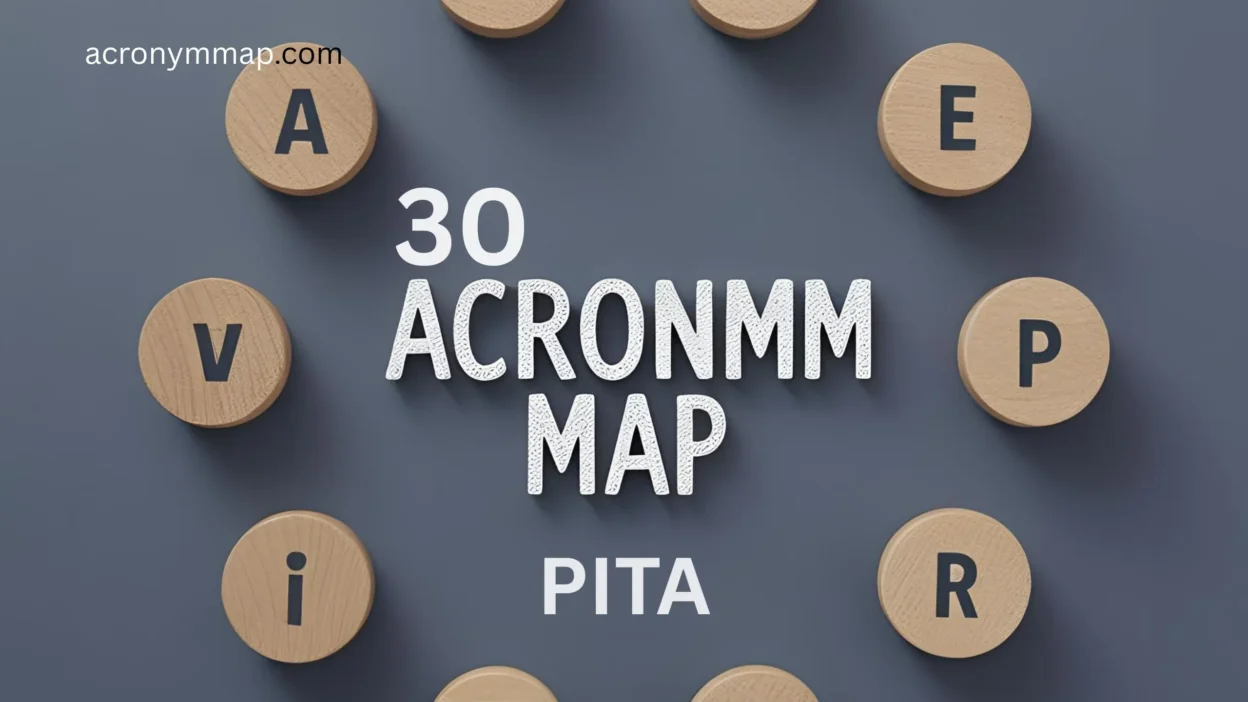We’ve all had moments where something—or someone—just makes life harder than it needs to be. You may have heard the acronym “PITA” tossed around in casual conversation, workplace banter, or even in venting sessions.
📌 What Does “PITA” Mean?
PITA stands for “Pain In The A”** (yep, that A-word). It’s a sarcastic, informal acronym used to describe something (or someone) that’s annoying, frustrating, time-consuming, or unnecessarily difficult.
Key Traits of “PITA” Situations:
- Frustrating
- Tedious or repetitive
- Emotionally draining
- Often trivial—but annoying
- Sometimes used humorously or ventingly
Because PITA is slang and can be considered vulgar depending on the audience, it’s important to have polished, professional, or toned-down alternatives—especially for the workplace or public communication.
Here are 30 creative alternatives to “PITA,” plus when and how to use them.
😣 30 PITA Alternatives + When to Use Them
1. Challenging
- Use when: You want to keep things professional.
- Example: That client has been quite challenging lately.
2. Tedious
- Use when: Describing repetitive tasks.
- Example: The data entry process was tedious but necessary.
3. Frustrating
- Use when: Expressing mild annoyance.
- Example: It’s frustrating when deadlines keep shifting.
4. Time-consuming
- Use when: Describing something that takes longer than expected.
- Example: The process was surprisingly time-consuming.
5. Irritating
- Use when: You want to sound neutral but honest.
- Example: The software bug is irritating, to say the least.
6. A handful
- Use when: Referring to a person or situation playfully.
- Example: He’s a bit of a handful in meetings.
7. Demanding
- Use when: You need a formal or HR-safe phrase.
- Example: The client has been very demanding this quarter.
8. Annoying
- Use when: Informal, but still mild.
- Example: Those pop-ups are just plain annoying.
9. Complicated
- Use when: Highlighting unnecessary complexity.
- Example: This approval process is overly complicated.
10. Troublesome
- Use when: Old-school but still polite.
- Example: The printer has been troublesome all week.
11. A bit much
- Use when: You want to sound humorous or sarcastic.
- Example: That email chain was a bit much.
12. Overly involved
- Use when: You need to sound tactful.
- Example: The review process is overly involved.
13. Nagging
- Use when: Describing recurring small issues.
- Example: There’s a nagging error in the code.
14. Compulsive micromanager
- Use when: Describing people (carefully!).
- Example: He’s a bit of a compulsive micromanager.
15. Overwhelming
- Use when: Talking about stacked-up tasks.
- Example: All these urgent tickets are overwhelming.
16. Demand-heavy
- Use when: When managing client expectations.
- Example: This project is unusually demand-heavy.
17. Draining
- Use when: Describing emotional or mental fatigue.
- Example: That back-to-back meeting schedule was draining.
18. Fussy
- Use when: Lighthearted complaints about systems or people.
- Example: This software is fussy with formatting.
19. Bureaucratic
- Use when: Pointing at red tape without sounding rude.
- Example: It’s a very bureaucratic approval process.
20. Excessive
- Use when: Referring to overkill situations.
- Example: All those approvals feel excessive.
21. Overcomplicated
- Use when: Friendly but firm critique.
- Example: The setup instructions are overcomplicated.
22. Nitpicky
- Use when: Casual tone about detail-oriented folks.
- Example: The reviewer was a little nitpicky.
23. High-maintenance
- Use when: Talking about systems or people (be careful!).
- Example: The legacy system is high-maintenance.
24. Tricky
- Use when: You want to keep it light.
- Example: That configuration was tricky to figure out.
25. Touchy
- Use when: The situation or person is sensitive.
- Example: That’s a touchy topic with the team.
26. Snaggy
- Use when: Describing small issues or glitches.
- Example: The deployment process is a bit snaggy.
27. Painful
- Use when: Light sarcasm, friendly tone.
- Example: That install was just painful.
28. Messy
- Use when: Things feel disorganized.
- Example: The file structure is messy right now.
29. Red-tape-heavy
- Use when: Humorously describing bureaucracy.
- Example: The procurement process is red-tape-heavy.
30. Headache-inducing
- Use when: Exaggeration with humor.
- Example: That budget spreadsheet is headache-inducing.
🧭 Choosing the Right Alternative: Tone Matters
| Tone/Context | Best Options |
| Professional | “Challenging,” “Demanding,” “Complicated” |
| Lighthearted/Friendly | “A handful,” “Tricky,” “A bit much,” “Fussy” |
| Humorous Sarcasm | “Headache-inducing,” “Painful,” “Red-tape-heavy” |
| HR-Safe Feedback | “Overly involved,” “Time-consuming,” “Draining” |
| Venting with a Peer | “PITA,” “Annoying,” “Messy,” “Nitpicky,” “High-maintenance” |
🌍 Cultural & Emotional Nuances
- In corporate settings, avoid PITA and choose “challenging” or “demanding” instead.
- With friends or teammates, words like “fussy,” “tricky,” or “a bit much” can be humorous without sounding rude.
- Be careful when using descriptors like “high-maintenance” or “nitpicky” for people—they can easily come off as judgmental if misinterpreted.
🎯 Final Thoughts
While “PITA” might perfectly capture your feelings in the moment, it’s not always the right fit—especially in professional or public settings. With this list of 30 thoughtful alternatives, you can express your frustration clearly, tactfully, or humorously depending on the situation.
So the next time something drives you up the wall, don’t just call it a PITA—pick the perfect word for the moment. Your emails, chats, and sanity will thank you.

